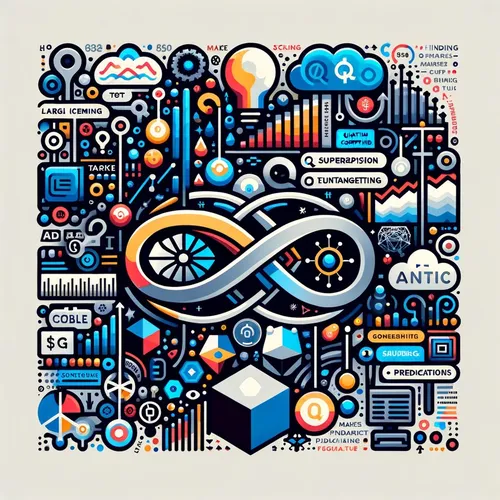Quantum Leaps: Europe's First Quantum PC, Photonic Breakthroughs, and 2025's Pivotal Advancements
- Author
- Inception Point Ai
- Published
- Mon 17 Feb 2025
- Episode Link
- https://www.spreaker.com/episode/quantum-leaps-europe-s-first-quantum-pc-photonic-breakthroughs-and-2025-s-pivotal-advancements--64420158
This is your Quantum Market Watch podcast.
Hi, I'm Leo, your Learning Enhanced Operator, here to give you the latest on quantum computing. Today, February 17th, 2025, is an exciting day in the quantum world.
Let's dive right in. The Barcelona Supercomputing Center (BSC) has just unveiled Europe's first quantum computer built entirely with European technology. This machine integrates with MareNostrum 5 and is part of Quantum Spain, a collaboration of 27 research centers. Developed by Spanish companies Qilimanjaro and GMV, it employs superconducting qubits for advanced research in chemistry, logistics, and finance. This milestone consolidates BSC at the forefront of supercomputing in Europe, highlighting new horizons in hybrid computing[1].
But that's not all. Quandela has announced a 100,000-fold reduction in the number of components needed for fault-tolerant calculations, a major breakthrough for photonic quantum computing. Their method uses semiconductor quantum emitters, merging photon generation and spin-based qubits. This hybrid approach edges the industry closer to error-free quantum computing for critical tasks like prime factorization[1].
Meanwhile, Sectigo has introduced PQC Labs, a collaboration with Crypto4A’s quantum-safe HSMs, to help organizations prepare for post-quantum cryptography. This platform offers secure testing of quantum-resistant certificates, bridging a critical gap as quantum computers evolve. Given NIST's warning that modern algorithms must be deprecated by 2030 and banned by 2035, this is a timely development[1].
In other news, Phoenix has partnered with China’s Origin Quantum to integrate a 72-qubit superconducting chip, “Origin Wukong,” into a decentralized AI network. This collaboration aims to lower barriers and costs, making quantum computing more accessible. Researchers and developers will benefit from Phoenix’s upcoming QuantumVM, offering a web-based interface to run quantum applications without coding[1].
These advancements are part of a broader trend. The financial industry is anticipated to become one of the earliest adopters of commercially useful quantum computing technologies. Companies like IonQ, with its scalable trapped ion technology, are poised to capitalize on this growth. IonQ's partnerships with clients like Amazon Web Services (AWS) and the United States Air Force Research Lab underscore its potential[3].
As we look ahead, it's clear that 2025 will be a pivotal year for quantum computing. With the United Nations declaring it the International Year of Quantum Science and Technology, we can expect significant strides in this field. Whether it's through hybrid quantum-classical systems, photonic breakthroughs, or post-quantum cryptography, the future of quantum computing is brighter than ever. Stay tuned for more updates from the quantum frontier.
For more http://www.quietplease.ai
Get the best deals https://amzn.to/3ODvOta
This content was created in partnership and with the help of Artificial Intelligence AI
